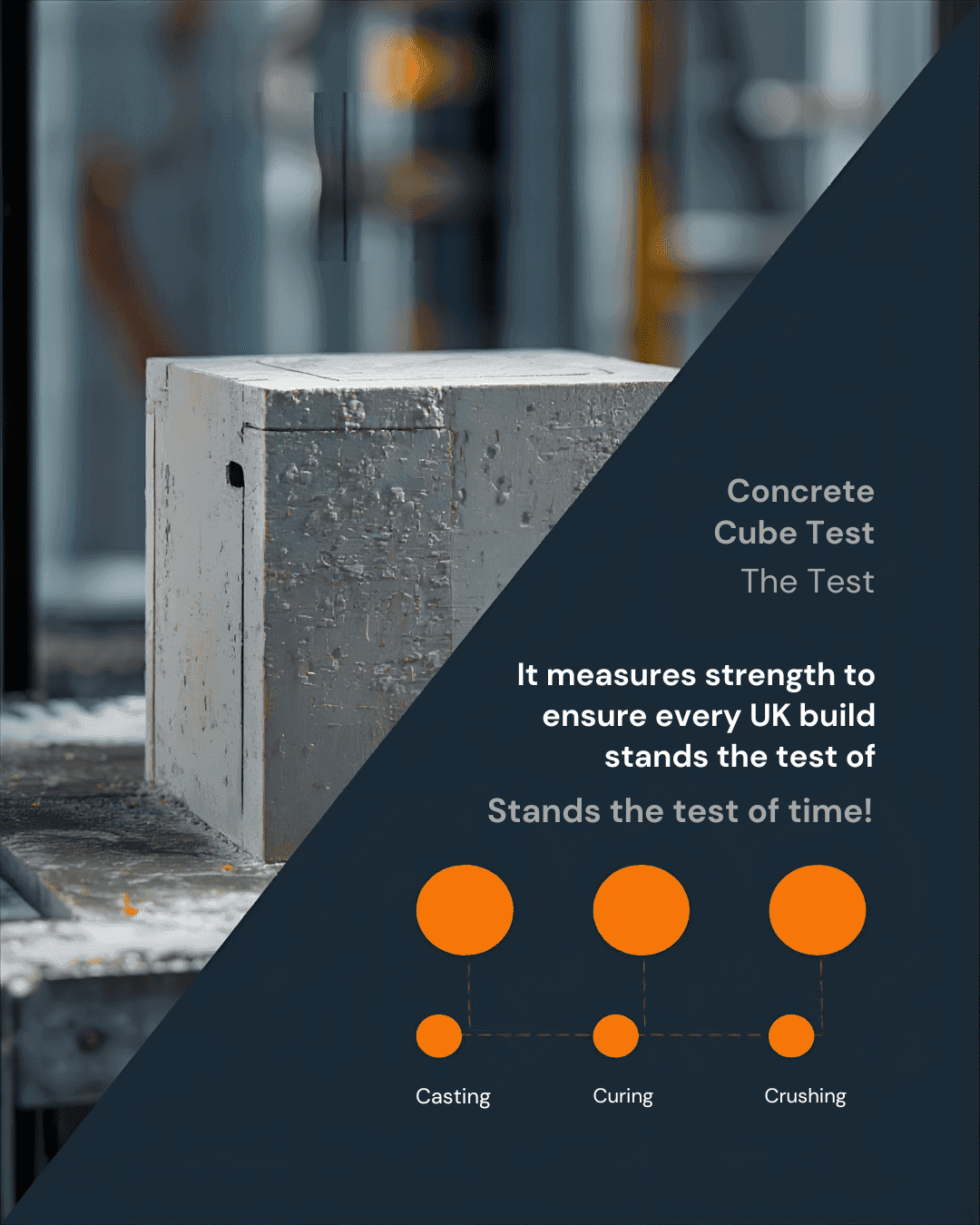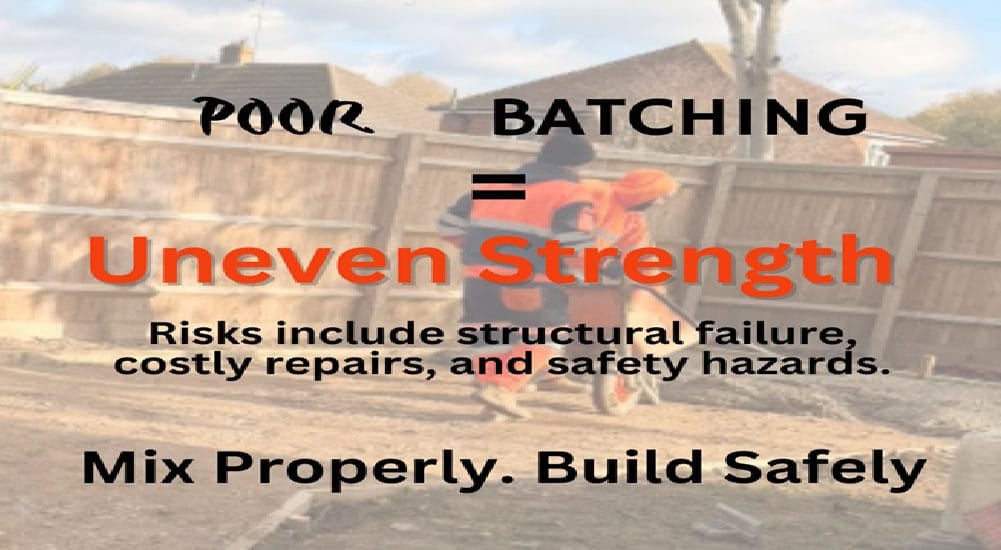Quality control is a critical factor in the production of ready-mix concrete (RMC), ensuring the final product meets the required standards for strength, durability, and performance. Without rigorous quality control measures, concrete structures may suffer from inconsistencies, leading to structural weaknesses, increased maintenance costs, and potential safety hazards. In this blog, we explore the significance of quality control in ready-mix concrete production and how it benefits residential and commercial construction projects.
Understanding Ready-Mix Concrete and Its Applications
Ready-mix concrete is a precisely manufactured mixture of cement, water, aggregates, and additives, produced at a batching plant and delivered to the construction site in a ready-to-use state. Mighty Concrete ensures their ready-mix concrete meets stringent quality standards, providing reliable and high-performance solutions for various construction projects, including foundations, driveways, patios, and structural elements.
Quality Control is Crucial in Ready-Mix Concrete Production
Ensuring Consistency in Strength and Durability
Quality control in RMC production makes sure each batch maintains consistent strength and durability. The proportioning of cement, aggregates, water, and additives is carefully calibrated to prevent variability, ensuring the final concrete meets the required load-bearing capacity.
Example: In a residential high-rise project, consistent concrete strength is essential to support the structural load across multiple floors. Without proper quality control, some sections may be weaker than others, increasing the risk of structural failure.
Compliance with Industry Standards and Regulations
Stringent quality control helps manufacturers comply with national and international construction standards, such as British Standards (BS EN 206) for concrete production. Adhering to these guidelines ensures the concrete performs optimally in various environmental and load conditions.
Example: A company constructing a motorway bridge must use ready-mix concrete which meets strict government regulations for compressive strength, frost resistance, and durability, ensuring long-term safety and performance.
Reducing Material Wastage and Environmental Impact
Proper quality control minimises material wastage by ensuring accurate mixing ratios and reducing the risk of rejected batches. This also helps in reducing the carbon footprint associated with excessive cement usage and disposal of substandard concrete.
Example: A sustainable housing project can benefit from quality-controlled RMC which minimises excess cement usage while maintaining high strength, contributing to eco-friendly construction.
Enhancing Workability and Placement
The consistency of ready-mix concrete affects its workability and ease of placement. Properly controlled concrete ensures smooth pouring, reducing issues such as segregation, honeycombing, or excessive bleeding.
Example: In a decorative stamped concrete driveway project, workability is key to achieving a uniform surface finish. Quality-controlled RMC ensures the concrete is neither too stiff nor too fluid, allowing for precise shaping and finishing.
Preventing Structural Defects and Long-Term Maintenance Costs
Poor-quality concrete can lead to structural defects such as cracks, shrinkage, or reduced load-bearing capacity, leading to costly repairs and maintenance over time. Quality control helps prevent such issues by ensuring optimal mix designs and curing processes.
Example: A basement foundation built with substandard concrete may develop cracks due to shrinkage, leading to water infiltration and structural instability. A high-quality RMC mix provides durability and reduces the need for frequent repairs.
Key Quality Control Measures in Ready-Mix Concrete Production
Raw Material Testing and Selection
The quality of raw materials—cement, aggregates, water, and admixtures—plays a crucial role in determining the final concrete quality. Quality control starts with rigorous testing of these materials to meet required specifications.
Example: The use of low-quality aggregates with high moisture content can weaken the concrete mix. Leading suppliers Mighty Concrete, ensure that only high-grade aggregates are used for production.
Computerised Batching and Mixing
Modern batching plants use computerised systems to prepare precise mixing of ingredients. Automated systems help maintain accuracy in mix proportions, reducing human error and inconsistencies.
Example: For a large-scale commercial building, automated batching ensures that every concrete delivery has the same water-cement ratio, preventing variations in setting times and strength development.
Slump and Workability Testing
The slump test is a standard quality control measure used to assess the workability of fresh concrete. It helps determine whether the mix is too dry or too wet, ensuring proper consistency for easy placement and compaction.
Example: A contractor pouring concrete for a garden pathway can rely on slump test results to confirm the mix is ideal for smooth placement without excessive bleeding or segregation.
Compressive Strength Testing
Concrete samples are taken from each batch and tested for compressive strength at specific intervals (e.g., 7, 14, and 28 days). This tests the concrete meets the required strength before being used in critical structural elements.
Example: A housing development project must ensure foundation concrete reaches the specified 30MPa strength before further construction can proceed.
On-Site Quality Checks and Curing Procedures
Even after delivery, quality control continues on-site through visual inspections, temperature monitoring, and curing practices. Proper curing is essential for preventing premature drying and achieving the required concrete strength.
Example: A residential swimming pool project requires controlled curing to prevent cracks and ensure water resistance. Proper site quality checks help achieve the desired durability.
Choose Mighty Concrete for Quality-Assured Ready-Mix Concrete
When selecting a ready-mix concrete supplier, it is essential to choose one with a strong commitment to quality control. Mighty Concrete ensures every batch of concrete meets the highest standards by:
- Using premium raw materials and advanced mixing technology
- Conducting rigorous quality tests, including slump and strength tests
- Providing expert consultation to help clients choose the right mix for projects
- Delivering consistent and reliable concrete for residential and commercial applications
Quality control in ready-mix concrete production is essential for ensuring structural integrity, compliance with regulations, and long-term durability. Whether for residential homes, commercial buildings, or infrastructure projects, high-quality RMC minimises defects, enhances efficiency, and contributes to cost savings.
For builders, contractors, and homeowners seeking a trusted concrete supplier, Mighty Concrete offers superior-quality ready-mix concrete guaranteeing strength, consistency, and sustainability. Contact them today to learn more about how their quality-controlled concrete can benefit your construction project.










